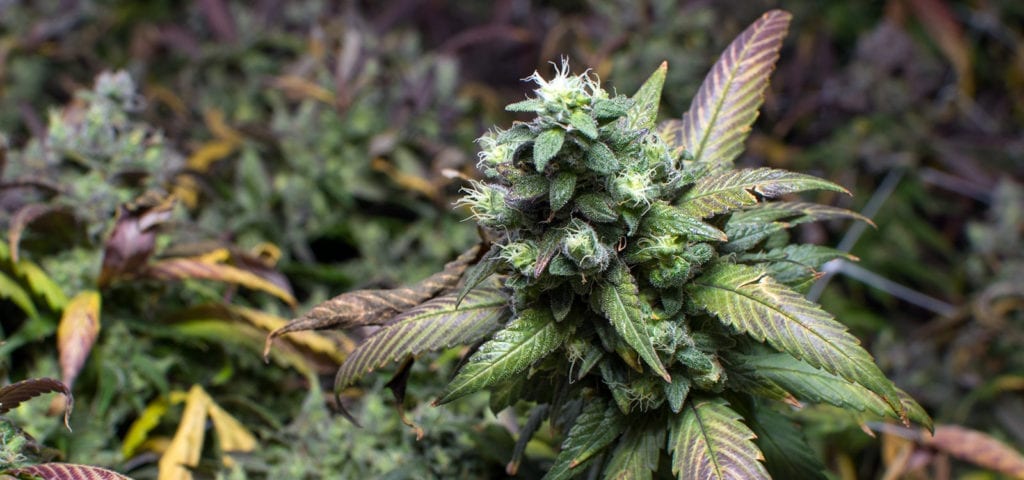Hocking College, a two-year technical school in Nelsonville, Ohio, announced that they intend to serve as a cannabis testing facility as required by the state’s medical cannabis law – and are, so far, the only institute of higher education in the state to make public their interest in the sector.
Under state law, cannabis testing labs must be owned and operated by an institute of higher education. During a press conference, Hocking President Dr. Betty Young indicated the college has submitted the appropriate documents to the Ohio Department of High Education to launch a laboratory science program beginning in the Fall, 2018 semester. Hocking is currently in the process of developing a comprehensive laboratory science curriculum, including tracks in medical laboratory technician, forensics, chemical and cannabis laboratory science. The curriculum will be designed to meet the accreditation standards of the National Accrediting Agency for Clinical Laboratory Science.
If the program is approved, Hocking’s cannabis lab tech major would be the first in the nation.
“We recognize that this is a bold leadership decision; and one we have not taken lightly,” Young said during the press conference. “With months of exploration, we are proud to lead the way as Ohio’s institute of higher education willing and able to commit to being Ohio’s center for research and development of this new industry.”
The college is partnering with Dr. Jonathan Cachat on the laboratory science and cannabis testing project. Cachat will develop the undergraduate curricula, undergraduate research, and serve as the director of the lab. Cachat previously served as the director of a psychopharmacology lab at New Orleans’ Tulane University, which held a license from the Drug Enforcement Agency to research compounds scheduled under the Controlled Substances Act.
“Education is the answer to many public issues we face, from job opportunities to opiate abuse,” Cachat said during his remarks. “Cannabis is a plant, not a pill.”
Cachat indicated that, if approved, the lab will test for pesticides, molds, and fungus in addition to THC and CBD content and ratios. The data will be collected by the college and Cachat applauded the decision by the legislature to put testing in the hands of institutes of higher education because it ensures “the translational exchange from data, information, and knowledge will be complete.”
Cachat called the college administrators “courageous” for moving forward with the program and pointed out that that there are more than 230 medical and clinical lab technician job openings annually with a median salary between $40,000 and $60,000.
“Not only will there be opportunities for hands-on training of lab technicians, we will be able to assist and further biomedical research by connecting the dots between analytical profiles and disease symptomology,” Cachat explained, suggesting that the data would be shared with the medical community. “This is not a privately-owned, privately-controlled analytics lab. We intend to create opportunities for discovery, rather than destroy them by hoarding the data to ourselves.”
Neither Cachat nor Young knew of any other Ohio college or university that has applied, or plans to apply, to participate in the state’s medical cannabis program. Cachat said that the team anticipates submitting their application on time – before Sept. 22 – and the state is expected to make their decision within 90 days; less if Hocking’s is the only application the state receives.
Tim Brunicardi, executive director of marketing, public and community relations for Hocking College, indicated that school officials had consulted with legal counsel before deciding the launch the program to ensure that the school would not be at risk to lose any federal funding due to their participation in the state’s medical cannabis industry.
“We’re supporting the Ohio legislation and … we don’t anticipate having any potential issues with the federal government,” he said in a phone interview.
Young indicated that in the short-term the college would seek $5 million in public and private support for the project, which would immediately create 12 new jobs in conjunction with the lab’s opening. Brunicardi explained that there “is potential” for the lab to, eventually, become a source of revenue for the college.
“Yes, there are potential revenue streams there,” Cachat added. “But it’s more about creating opportunities for education and improving the economic viability of the region, as well as the health of all Ohioans – all that’s over profits.”
Get daily cannabis business news updates. Subscribe
End
